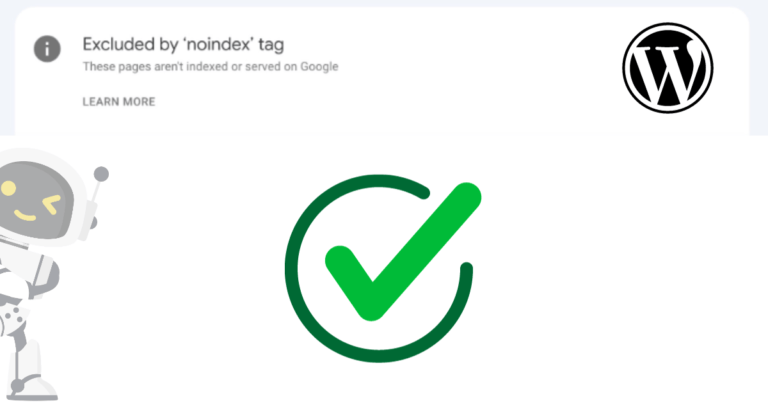Is WordPress Good for Ecommerce?

When considering a content management system (CMS) for your ecommerce website, you might wonder if WordPress is a good choice.
WordPress is a popular content management system (CMS) that provides several plugins, including WooCommerce, and a variety of customizable templates for ecommerce functionality and design.
Additionally, it offers features that are optimized for search engine optimization (SEO) and allows integration with various payment gateways.
However, it’s important to note that while WordPress can be used for ecommerce, it may not be the best solution. As a CMS primarily designed for content management, it may lack some essential features required for a seamless online shopping experience.
Plugin compatibility issues and associated fees for hosting and payment processing are also considerations.
For those seeking a more specialized ecommerce solution, other platforms like Shopify, BigCommerce, or Squarespace, which are purpose-built for online stores, may be worth considering.
These platforms offer comprehensive features, scalability, and dedicated customer support specifically tailored to ecommerce businesses.
While WordPress can be used for ecommerce, it may not provide the optimal experience compared to platforms specifically designed for online stores.
By carefully considering your specific requirements and goals, you can make an informed decision that best suits your ecommerce business.
Is WordPress Good for Ecommerce? (Video)
In this video this question has been answered properly with explaination. So make sure to see that but dont worry you will also find all the detailed information on this topic after this video.
WordPress as a Content Management System
WordPress is a widely used CMS that can be a suitable foundation for your ecommerce site. With its user-friendly interface and extensive plugin ecosystem, it offers the flexibility and functionality needed to manage your online store effectively.
One of the standout features of WordPress as a CMS is its ability to support ecommerce functionality through plugins like WooCommerce.
This popular plugin allows you to easily set up and manage your products, inventory, and orders. It also provides a range of marketing and promotional tools to help grow your online business.
In addition to plugins, WordPress offers a wide variety of templates that can be customized to create a unique and visually appealing online store.
Whether you’re a beginner or an experienced web developer, WordPress provides the tools and resources needed to design a professional-looking ecommerce website.
WordPress as a Content Management System
| Ecommerce Platform | Strengths | Limitations |
|---|---|---|
| WordPress | Flexible customization options, extensive plugin support | Lacks some essential ecommerce features, plugin compatibility issues |
| Shopify | All-in-one ecommerce solution, easy to use, 24/7 customer support | Monthly fees, transaction fees for non-Shopify payments |
| BigCommerce | Powerful features, scalable for growing businesses | Higher pricing plans, limited design flexibility |
| Squarespace | Beautiful templates, user-friendly interface | Less customization options, limited advanced features |
When using WordPress as a CMS for your ecommerce site, it’s important to consider its SEO-friendly features. WordPress makes it easy to optimize your website for search engines, helping to improve its visibility and attract more organic traffic.
With built-in tools for meta tags, sitemaps, and clean URLs, you can ensure that your products are easily discoverable by potential customers.
While WordPress offers many benefits for ecommerce websites, it’s important to note that it may not have all the specific features you require.
Depending on the complexity of your online store, you may find that a dedicated ecommerce platform like Shopify, BigCommerce, or Squarespace is a better fit for your needs.
These platforms are specifically designed for online businesses and offer a range of features and integrations tailored to ecommerce.
Strengths of WordPress for Ecommerce
One of the key advantages of using WordPress for your online store is its range of strengths and features that can enhance your ecommerce experience.
WordPress offers a user-friendly interface that makes it easy to manage your products, inventory, and orders. With the availability of plugins like WooCommerce, you can transform your WordPress website into a fully functional ecommerce platform.
WordPress also offers a wide variety of customizable templates that allow you to create a unique and visually appealing online store.
These templates can be easily customized to match your brand and provide a seamless shopping experience for your customers.
Additionally, WordPress’s SEO-friendly features can help improve your website’s visibility in search engine results, driving more organic traffic to your online store.
Another strength of WordPress for ecommerce is its integration with various payment gateways. WordPress provides compatibility with popular payment processors, allowing you to securely accept payments from your customers.
This ensures a smooth and reliable transaction process, enhancing the overall shopping experience for your customers.
Strengths of WordPress for Ecommerce:
- User-friendly interface for easy management of products, inventory, and orders.
- Ability to transform your WordPress website into a fully functional ecommerce platform using plugins like WooCommerce.
- Wide variety of customizable templates for creating a unique and visually appealing online store.
- SEO-friendly features to improve your website’s visibility in search engine results.
- Integration with popular payment gateways for secure and reliable payment processing.
| Strengths | Features |
|---|---|
| User-friendly interface | Easy management of products, inventory, and orders |
| Plugin compatibility | Transform WordPress into ecommerce platform using plugins like WooCommerce |
| Customizable templates | Create unique and visually appealing online store |
| SEO-friendly | Improve visibility in search engine results |
| Integration with payment gateways | Secure and reliable payment processing |
While WordPress offers numerous strengths for ecommerce, it’s important to note that it may not be the best solution for every online business.
As WordPress is primarily a content management system, it may lack some essential features that are specific to ecommerce platforms designed exclusively for online stores.
In addition, plugin compatibility issues can arise, especially when using multiple plugins to enhance your ecommerce functionality.
There may also be associated fees for hosting and payment processing services, which should be considered when evaluating the overall cost of using WordPress for your online store.
To make an informed decision for your ecommerce business, it is recommended to explore other dedicated ecommerce platforms like Shopify, BigCommerce, or Squarespace. These platforms are specifically built for online stores and offer comprehensive features and support tailored to the needs of ecommerce businesses.
Limitations of WordPress for Ecommerce
| Limitations of WordPress for Ecommerce | Recommended Alternative Ecommerce Platforms |
|---|---|
| Potential plugin compatibility issues | Shopify |
| Associated fees for hosting and payment processing | BigCommerce |
| Lack of essential ecommerce features | Squarespace |
While WordPress offers many benefits, it is important to be aware of its limitations when it comes to ecommerce. Although plugins like WooCommerce provide ecommerce functionality, WordPress is not specifically built for online stores.
This means that it may lack some essential features that are necessary for a seamless and robust ecommerce website.
One of the potential drawbacks of using WordPress for ecommerce is the possibility of plugin compatibility issues.
With thousands of plugins available, there is always a risk that certain plugins may not work well together or may cause conflicts with your website’s theme or other plugins. This can lead to technical issues and may require additional time and effort to troubleshoot and resolve.
Another consideration is the associated fees for hosting and payment processing. While WordPress itself is free to use, you will still need to invest in a reliable and secure hosting provider, which may involve monthly or annual fees.
Additionally, integrating payment gateways for your online store may come with transaction fees or other charges, depending on the payment service provider you choose.
Given these limitations, it is recommended to consider alternative ecommerce platforms that are specifically designed for online stores.
Platforms like Shopify, BigCommerce, and Squarespace offer a range of features and functionalities that are tailored to the needs of ecommerce businesses.
These platforms provide seamless integration with popular payment gateways, have extensive app marketplaces for added functionality, and offer dedicated customer support for online store owners.
Considerations for Choosing an Ecommerce Platform
Before making a decision, it is important to consider other ecommerce platforms that may better suit your needs.
While WordPress offers plugins like WooCommerce to enable ecommerce functionality, there are alternative platforms specifically designed for online stores.
Shopify, for example, is a popular choice known for its user-friendly interface and extensive app store. It offers a range of templates and customization options, making it easy to create a professional-looking online store.
Another option to consider is BigCommerce, which provides a robust set of ecommerce features and built-in marketing tools. It offers responsive templates and integrates seamlessly with popular payment gateways.
Squarespace, on the other hand, offers a visually stunning platform with beautiful templates that are perfect for showcasing products. It also provides easy integration with third-party services like payment processors and shipping providers.
When comparing these platforms, it is important to assess factors such as ease of use, scalability, and customer support. Shopify, for instance, is known for its excellent customer support, available 24/7. It also offers a variety of plans to accommodate businesses of all sizes.
BigCommerce, on the other hand, provides powerful built-in features and unlimited scalability, making it ideal for growing businesses.
Squarespace, with its intuitive interface and beautiful design options, is a great choice for small to medium-sized businesses looking for a visually appealing online presence.
| Platform | Ease of Use | Scalability | Customer Support |
|---|---|---|---|
| Shopify | ✓ | ✓ | ✓ |
| BigCommerce | ✓ | ✓ | ✓ |
| Squarespace | ✓ | ✓ | ✓ |
Ultimately, the choice of an ecommerce platform depends on your specific requirements and goals. Consider factors such as ease of use, scalability, and customer support to make an informed decision that will best suit your ecommerce business.
Comparing WordPress with Other Ecommerce Platforms
To get a better understanding of WordPress’ suitability for ecommerce, it is helpful to compare it with other popular ecommerce platforms.
While WordPress offers plugins like WooCommerce for ecommerce functionality and a wide range of customization options through templates, it may not be the best solution for online stores.
Let’s take a closer look at some of the leading ecommerce platforms and their strengths:
Shopify
Shopify is a dedicated ecommerce platform that offers a comprehensive set of features specifically designed for online businesses.
It provides a user-friendly interface, seamless integration with various payment gateways, and a wide range of professionally designed templates.
Shopify also offers reliable hosting services and 24/7 customer support, making it a popular choice among ecommerce entrepreneurs.
BigCommerce
Similar to Shopify, BigCommerce is another ecommerce platform that offers a robust set of features tailored for online stores.
It focuses on scalability and provides advanced marketing and SEO tools to help businesses grow. BigCommerce also offers built-in security features, responsive templates, and integrations with popular third-party apps, making it a suitable choice for both small and large ecommerce businesses.
Squarespace
Squarespace is known for its visually appealing templates and user-friendly interface. While it is not solely focused on ecommerce, Squarespace provides a solid foundation for creating beautiful online stores.
It offers integrated payment processing, inventory management, and flexible shipping options, allowing businesses to easily manage their ecommerce operations. Squarespace is particularly popular among artists, designers, and creative professionals.
Considering the specific requirements of your ecommerce business is crucial when choosing the right platform. While WordPress has its strengths, it may not provide all the features and dedicated support that other ecommerce platforms offer.
Evaluating factors such as ease of use, scalability, customer support, and cost will help you make an informed decision for your online store.
Hosting and Payment Processing Considerations
When setting up an ecommerce website with WordPress, it is essential to consider the hosting and payment processing aspects.
Choosing the right hosting provider is crucial for ensuring the stability and performance of your online store. Look for a hosting service that offers reliable uptime, fast loading speeds, and scalable resources to accommodate your business growth.
Additionally, consider the payment processing options available for your WordPress ecommerce site. Integrating a secure and user-friendly payment gateway is vital for providing a seamless checkout experience to your customers.
Some popular payment processors compatible with WordPress include PayPal, Stripe, and Authorize.Net. Research their transaction fees, security features, and ease of integration to determine the best fit for your business needs.
It is also important to factor in any associated costs or fees when it comes to hosting and payment processing.
Some hosting providers may offer specialized WordPress hosting plans with additional ecommerce features, while others may charge extra for SSL certificates or domain registration.
Similarly, payment processors may have transaction fees or monthly subscription charges. Consider these expenses as part of your budget when evaluating the overall cost of running your ecommerce website.
| Hosting Considerations | Payment Processing Considerations |
|---|---|
| Reliable uptime | Secure and user-friendly payment gateway |
| Fast loading speeds | Transaction fees and security features |
| Scalable resources | Integration ease with WordPress |
| Additional ecommerce features | Costs and fees |
Considering these hosting and payment processing aspects will help you make an informed decision when setting up your ecommerce website with WordPress.
Remember to prioritize reliability, security, and user experience to ensure a successful online presence for your business.
Expert Recommendations for Ecommerce Platforms
Experts suggest considering certain factors when choosing an ecommerce platform for your online business.
While WordPress offers some ecommerce functionality through plugins like WooCommerce, it may not be the best solution for every business.
Here are some expert recommendations for ecommerce platforms that are specifically designed for online stores:
- Shopify: Known for its user-friendly interface and powerful features, Shopify is a popular choice among ecommerce businesses. It offers a wide range of templates, easy inventory management, and seamless integration with popular payment gateways.
- BigCommerce: BigCommerce is another top contender in the ecommerce platform market. It offers robust features like built-in SEO tools, mobile responsiveness, and scalability for businesses of all sizes.
- Squarespace: Squarespace is a user-friendly platform that allows businesses to create professional-looking websites with ease. It offers sleek templates, integrated ecommerce functionality, and reliable hosting options.
Each of these platforms has its own strengths and weaknesses, so it’s important to consider your specific requirements and goals before making a decision. Factors like ease of use, scalability, and customer support should be taken into account.
While WordPress can be a viable option for some ecommerce businesses, it may not offer the same level of specialized features and support as these dedicated ecommerce platforms.
Therefore, it is recommended to thoroughly research and compare different options before making a final decision for your online business.
Making the Right Choice for Your Ecommerce Business
Ultimately, the decision of whether WordPress is good for your ecommerce business depends on your unique needs and objectives.
WordPress is a widely used content management system (CMS) that can be used for ecommerce websites, but it may not be the best solution for everyone.
WordPress offers plugins like WooCommerce that provide ecommerce functionality, allowing you to set up an online store. It also provides a wide range of templates for customization, giving your website a unique look and feel.
With its SEO-friendly features and integration with various payment gateways, WordPress can be a solid option for small to medium-sized online businesses.
However, it’s important to consider that WordPress is not specifically built for ecommerce. This means that it may lack certain essential features that are crucial for running a successful online store.
Additionally, there can be plugin compatibility issues, where certain plugins may not work well together, impacting the functionality of your ecommerce website.
Another factor to keep in mind is hosting and payment processing. While WordPress itself is free, there may be associated fees for hosting your website and processing payments.
It’s essential to choose the right hosting provider and payment processor that align with your business goals and budget.
Considering these limitations, it may be worth exploring other ecommerce platforms like Shopify, BigCommerce, or Squarespace that are specifically designed for online stores.
These platforms offer comprehensive features, dedicated customer support, and seamless integration with various ecommerce tools.
In conclusion, while WordPress can be a viable option for ecommerce websites, it’s crucial to evaluate your specific requirements and goals.
Understanding the limitations and considering alternative platforms will help you make an informed decision and choose the right ecommerce solution for your business.
FAQ
Is WordPress a good platform for ecommerce websites?
WordPress can be used for ecommerce websites, but it may not be the best solution. While it offers plugins like WooCommerce for ecommerce functionality and various template options for customization, it is not specifically built for ecommerce and may lack some essential features.
What are the strengths of WordPress for ecommerce?
WordPress has SEO-friendly features and integrates with various payment gateways, making it a viable option for online businesses. It also offers a wide range of plugins and customization options.
What are the limitations of using WordPress for ecommerce?
The main limitations of using WordPress for ecommerce include the lack of specific ecommerce features and the potential for plugin compatibility issues. Additionally, there may be fees associated with hosting and payment processing that need to be considered.
Should I consider alternative ecommerce platforms?
Yes, it is recommended to consider alternative ecommerce platforms like Shopify, BigCommerce, or Squarespace that are specifically designed for online stores. These platforms offer comprehensive ecommerce features and are optimized for online businesses.
How does WordPress compare to other ecommerce platforms?
WordPress has its strengths and weaknesses compared to other ecommerce platforms. It is important to compare features, scalability, ease of use, and customer support when choosing the right platform for your ecommerce business.
What should I consider when choosing a hosting and payment processing service for WordPress?
When using WordPress for ecommerce, you should consider the associated fees of your chosen hosting and payment processing services. It is important to choose reliable and secure options that meet the specific needs of your online store.
Are there any expert recommendations for ecommerce platforms?
Experts often recommend ecommerce platforms that offer ease of use, scalability, and excellent customer support. Considerations such as these, as well as your specific requirements, should guide your decision-making process.
How can I make the right choice for my ecommerce business?
To make the right choice for your ecommerce business, carefully evaluate your specific requirements and goals. Consider factors like functionality, customization options, scalability, and support to select the best platform for your needs.



